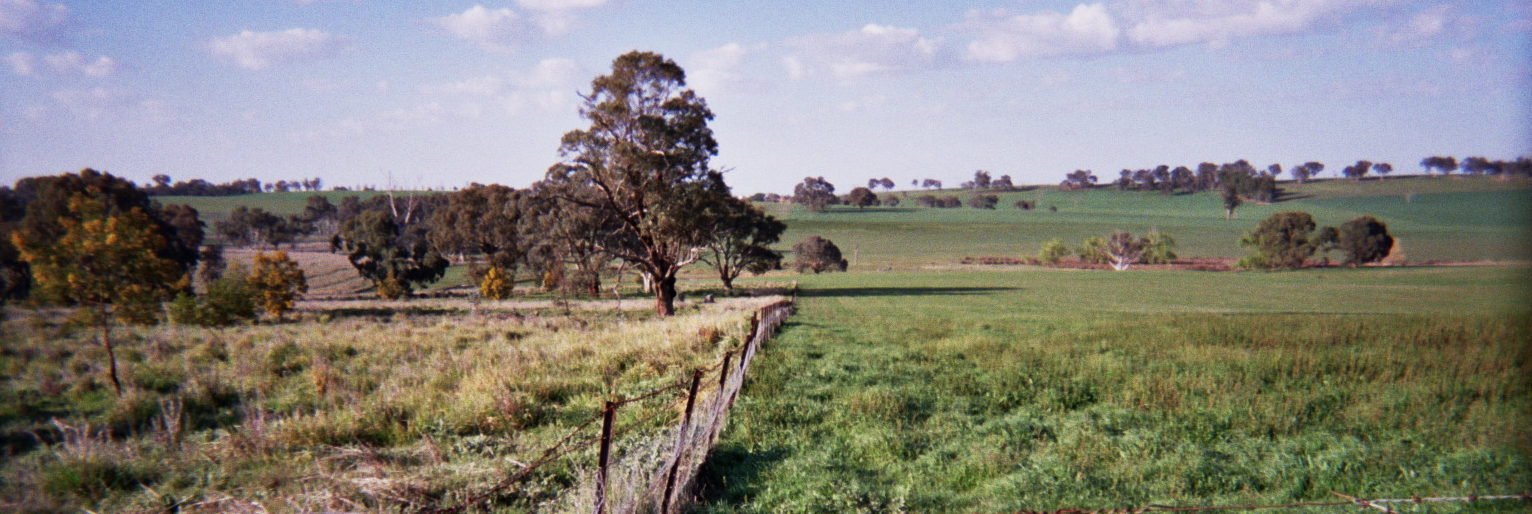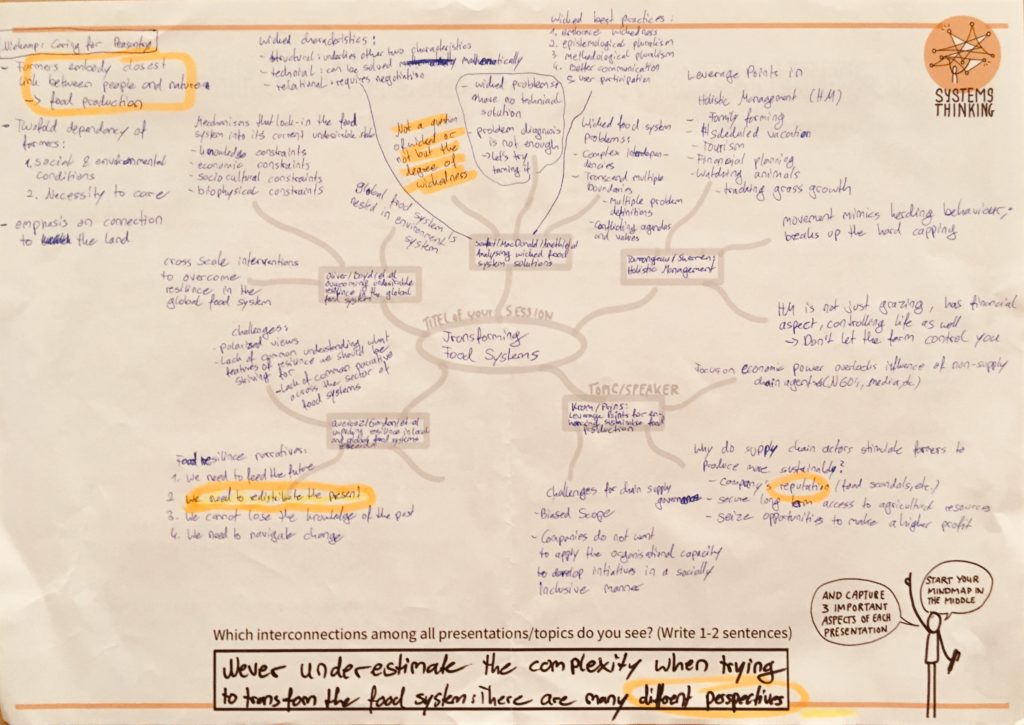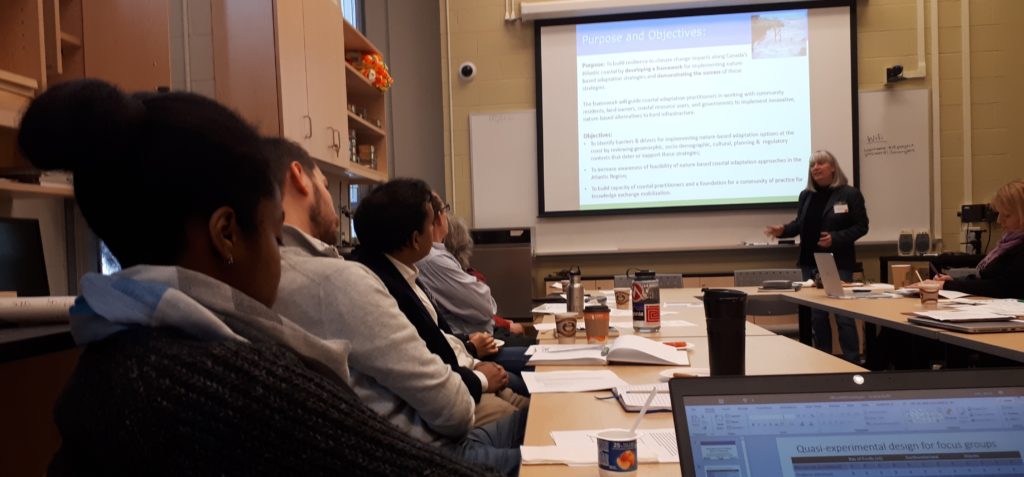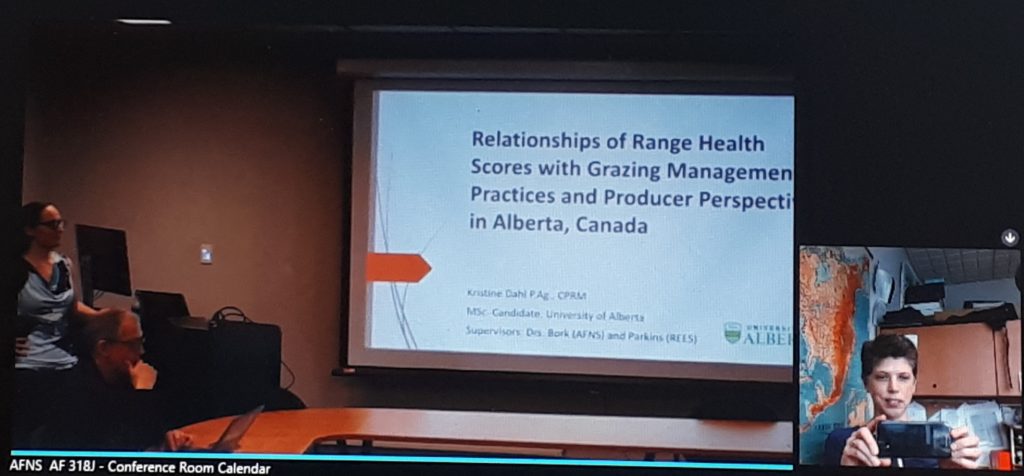The HM project is winding up, now in its extension year with SSHRC, and that means staffing is starting to contract. Really sad to see postdoc Wes Tourangeau heading out the door this week after 22 months, but happy that he is starting an important new stage of his career as a limited term appointment at Saint Mary’s University. As he leaves he has one paper out and five papers in first or second review–five of those six he led–across a wide range of topics and methods. That pile of library books includes works on the Falklands and its wool economy, statistics, environmental ethics, environmental history and more. I feel very lucky to have had such a rigorous and adaptable scholar work with me for such a duration. Best of luck, Wes!
Tag: holistic management (Page 2 of 6)
Back in 2014 colleagues at Leuphana and I had a chapter accepted in a volume of Ecological Reviews on Agricultural Resilience: perspectives from ecology and economics. I’m delighted to be able to report that the volume is finally published, five years later. Our chapter looks at the resilience implications of land sharing and land sparing, using as a case study the southeastern sheep-wheat belt where co-author Joern Fischer and I did our postdocs back at ANU in the late 2000s. We compared grazing archetypes of land sparing (fencing out dense woodlands for protection while continuously grazing the rest; see above) and land sharing (farmers using HM, who grazed intensively and rotationally pretty much everywhere on their farms, supporting scattered trees and their recruitment but few dense woodlands; see below). The resilience implications of these options are analyzed, integrating ecology, economics and social dimensions, and consistent with where the broader sharing/sparing debate has settled, reached the conclusion that a diversity of approaches is needed for system-wide sustainability.

Archetypal land sharing in the southeastern Australian grazing landscape thanks to HM to the left of the fence.
Some of my favourite parts of the chapter are the sample quotes included on the social challenges of adopting HM practices that draw from my 2008 photo-elicitation interviews with graziers across a range of practices. They speak to the mundane yet powerful barriers of change that come from our need for relationships and respect: for instance, not having anything to talk to conventional farmers about at BBQs (“what will I open with?”), or having people think they’ve “lost the plot” and feeling the pressure after HM training to “go like a sheep and follow the rest” rather than convert. Such pressures align with some of what we’re hearing from HM trainers, too.
Had some FOMO last week as the Leverage Points meeting was happening in Lueneburg, Germany, led by friends and colleagues like Joern Fischer and Dave Abson. Teaching term did not provide me the space, but Wes Tourangeau attended to talk about our work on grazing in the Falklands, and the idea of Savory’s Holistic Management as a leverage point. We were placed in the ‘transforming food systems’ panel, despite the Falklands agriculture being focused on wool, but Wes reported strong engagement and good feedback to help us polish up those papers. The ‘handmade’ feel of the conference with graphic facilitation of keynotes, session-based mind mapping and cardboard signage, demonstrates the desire to do things differently. By all accounts, it worked.
Carolyn Mann’s first paper out of the HM project – Holistic Management and adaptive grazing: a trainers’ view – is online this morning at Sustainability, and open access. Ours is the first paper out in a special issue on Agroecology for the Transition towards Social-Ecological Sustainability. We just happened to have a draft ready when we heard about the special issue. Carolyn interviewed 25 HM or adaptive grazing trainers across Canada and the US to get a sense of how they see their training, and their trainees. Some interesting findings around gender, what it means to adopt, as well as the separability between the holistic planning and the specific grazing practices.
Next we developed a systems thinking statement concourse, in part using these interviews, and conducted Q-method online with 18 HM trainers and trainees to identify degrees and types of systems thinking. That paper is still in development, but a little teaser: gender again seems to play a role!






